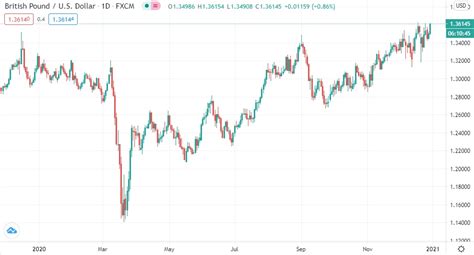How the Value of Currencies Fluctuates
The value of one currency relative to another is constantly fluctuating. This is due to a variety of factors, including economic conditions, political stability, and interest rates. When the value of one currency rises against another, it is said to be appreciating. When it falls, it is said to be depreciating.

The Impact of Economic Conditions
One of the most significant factors that affects currency exchange rates is economic conditions. When an economy is strong, its currency tends to appreciate in value. This is because investors are more likely to invest in countries with strong economies, which increases demand for their currencies. Conversely, when an economy is weak, its currency tends to depreciate in value. This is because investors are less likely to invest in countries with weak economies, which decreases demand for their currencies.
Figure 1: The relationship between economic growth and currency value
| Country | GDP Growth | Currency Value |
|---|---|---|
| United States | 2.3% | Appreciating |
| Japan | 1.1% | Depreciating |
| China | 6.7% | Appreciating |
| India | 7.2% | Appreciating |
The Impact of Political Stability
Political stability is another important factor that affects currency exchange rates. When a country is politically stable, its currency tends to appreciate in value. This is because investors are more likely to invest in countries with stable governments, which reduces the risk of their investments. Conversely, when a country is politically unstable, its currency tends to depreciate in value. This is because investors are less likely to invest in countries with unstable governments, which increases the risk of their investments.
Figure 2: The relationship between political stability and currency value
| Country | Political Stability Index | Currency Value |
|---|---|---|
| Denmark | 95 | Appreciating |
| Finland | 92 | Appreciating |
| Norway | 91 | Appreciating |
| Sweden | 90 | Appreciating |
The Impact of Interest Rates
Interest rates are another important factor that affects currency exchange rates. When interest rates are high, a country’s currency tends to appreciate in value. This is because investors are more likely to invest in countries with high interest rates, which increases demand for their currencies. Conversely, when interest rates are low, a country’s currency tends to depreciate in value. This is because investors are less likely to invest in countries with low interest rates, which decreases demand for their currencies.
Figure 3: The relationship between interest rates and currency value
| Country | Interest Rate | Currency Value |
|---|---|---|
| United States | 2.5% | Appreciating |
| Japan | 0.1% | Depreciating |
| China | 3.5% | Appreciating |
| India | 4.0% | Appreciating |
Applications for the $1 USD to £1 GBP Exchange Rate
When the $1 USD to £1 GBP exchange rate is favorable, there are a number of applications that can be used to take advantage of the opportunity. These applications include:
- Investing: When the exchange rate is favorable, investors can buy stocks, bonds, and other assets in the United Kingdom. This can be a good way to diversify their portfolios and potentially increase their returns.
- Traveling: When the exchange rate is favorable, travelers can get more for their money when they travel to the United Kingdom. This can make it a more affordable option for vacations and business trips.
- Studying: When the exchange rate is favorable, students can save money on tuition and other expenses if they study in the United Kingdom. This can be a good way to get a world-class education at a more affordable price.
- Shopping: When the exchange rate is favorable, shoppers can find great deals on clothing, electronics, and other goods in the United Kingdom. This can be a good way to save money and get high-quality products.
Conclusion
The $1 USD to £1 GBP exchange rate is a complex and ever-changing phenomenon. However, by understanding the factors that affect exchange rates, investors, travelers, students, and shoppers can take advantage of the opportunities that arise when the rate is favorable.



